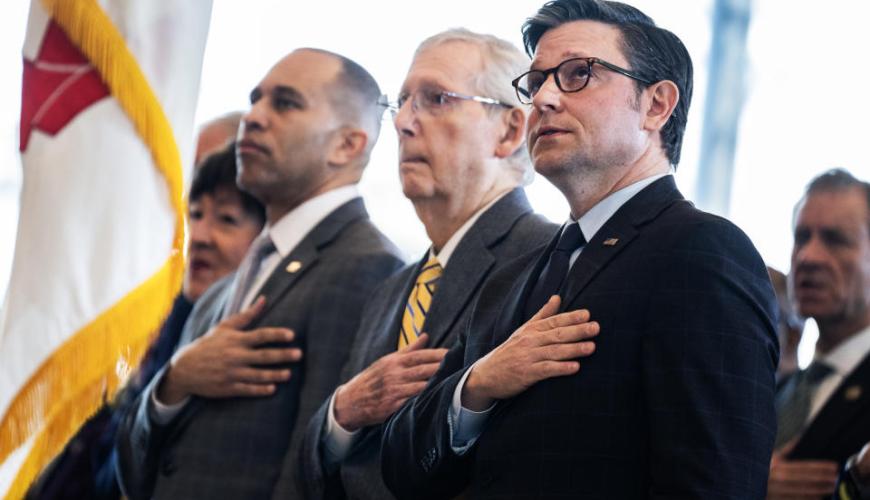Biden signs $1.2 trillion spending plan, avoiding government shutdown

The Senate voted for a $1.2 trillion spending plan to fund the government early Saturday morning, avoiding a shutdown and sending the measure to President Joe Biden for his signature.
The White House announced at 1:01 p.m. that Biden had signed the plan. In a statement, President Biden said the bill “keeps the government open, invests in the American people, and strengthens our economy and national security.”
The Senate's 74-to-24 vote concluded at 2:03 am ET, after more than 12 hours of negotiations following a House of Representatives vote Friday morning of 286-134 to advance the 1,012-page spending bill which covers an estimated 70% of discretionary government spending.
The House vote required a two-thirds majority and barely cleared that threshold amid strong GOP opposition.
The bill will fund the government through the end of September and is to be the final step in a drawn-out fight that has seen a government funding debate stretch almost six months into the fiscal year and risk a headwind for the economy. Business Roundtable CEO Joshua Bolten praised the vote in a statement and noted that "a fully operational U.S. government provides important stability for American businesses, workers and families."
But it didn't clear the House before more than 112 Republicans, a slim majority of the GOP caucus, bucked House Speaker Mike Johnson's move to work with Democrats and voted no.
Amid the debate, Rep. Marjorie Taylor Greene even filed a motion to vacate and remove Johnson from his position. In comments to reporters afterward, she called the move "a warning" to Johnson.
The White House said shortly after midnight that shutdown preparations had ceased, in anticipation of the president signing the legislation later Saturday.
"It has been a very long and difficult day," Senate Majority Leader Chuck Schumer noted late Friday night on the Senate floor adding "tonight our persistence has been worth it."
Congress is now set to break for a two-week recess.
A focus on the border
The tight deadlines are a result of last-minute delays over funding for the Department of Homeland Security, which oversees the border.
After calls from some Republicans to use the budget process to "dismantle" Biden's border policies, the final product is notably less dramatic, but there are some changes at the border set to be implemented. There are new resources for the US Border Patrol as well as additional detention beds run by Immigration and Customs Enforcement, among other provisions.
Other highlights of the massive bill include a cutting off of US government assistance to UNRWA, the main UN agency that provides assistance to Palestinians, amid accusations that a number of their employees participated in the Oct. 7 attack in southern Israel.
The bill also lays out increases for Democratic priorities like federal child care and funding for cancer and Alzheimer's research.
Provisions for other wings of the government — including the agriculture, commerce, and transportation departments — were already agreed to and enacted in another deal that passed earlier this month.
Opposition from the right
In the House, the steep two-thirds threshold required to pass the bill under a procedure known as the suspension of the rules left leadership scrambling leading up to Friday's vote, especially on the Republican side of the aisle. The close final tally came after the influential House Freedom Caucus came out in opposition, calling the bill "a massive spending bill drafted in secrecy and dropped on us in the middle of the night."
Over in the Senate, an array of conservatives from Rand Paul of Kentucky to Tommy Tuberville of Alabama and Ron Johnson of Wisconsin quickly announced their opposition with 23 Republican Senators voting no on final passage and finally agreeing to let the vote proceed more quickly in return for a series of amendment votes, which failed.
As for the economic fallout, it remains to be seen if another near-miss on Capitol Hill is a further strike for America's credit rating agencies.
S&P made a call in 2011 to downgrade the US credit rating. Last August, Fitch followed up with a downgrade of its own and cited government dysfunction as a key reason for doing so.
Moody's made its own move in November, turning negative on the US. It stopped short of a downgrade but kept the option open in the future.
This post has been updated with additional developments.
Ben Werschkul is Washington correspondent for Yahoo Finance.
